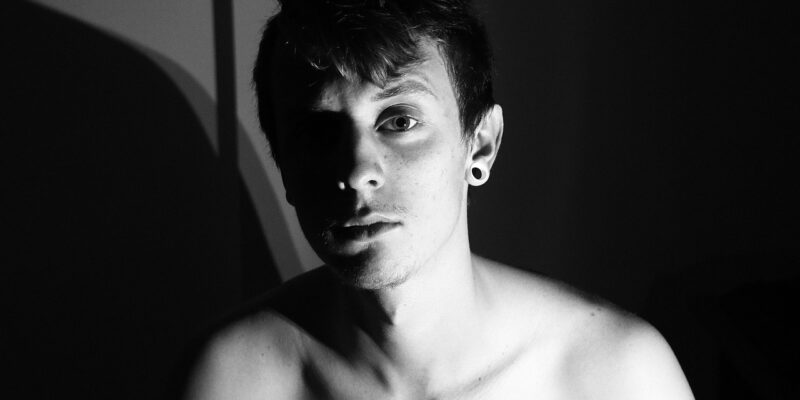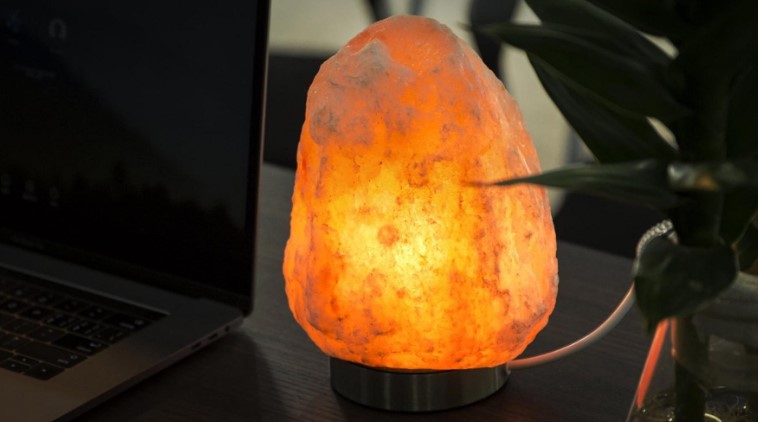Depression is a mood disorder that affects people from all walks of life, ages, genders, and cultures. It can cause feelings of hopelessness, sadness, and a loss of interest in activities that were once enjoyable. Depression can also negatively impact one’s ability to function in their daily life, causing problems at work, school, and in personal relationships.
Although depression can be a lifelong condition for some, there are several treatment options available that can effectively manage it. These treatment options include medication, therapy, and alternative treatments such as exercise and meditation. However, the success of treatment can vary depending on the individual’s unique circumstances and their willingness to participate in the treatment process.
It’s important to note that depression can be a complex condition and there is no single cure that works for everyone. However, it is possible to manage and reduce the symptoms of depression through a combination of treatment options. Seeking help for depression is an important step in the process of managing and improving mental health.
What Is Depression?
Depression is a mental health disorder that goes beyond simply feeling sad or blue. It is an ongoing condition that can affect a person’s daily life, work and relationships. The symptoms of depression can vary from person to person, but common ones include feeling hopeless, worthless, irritable or guilty. The disorder can also lead to physical symptoms like fatigue, changes in appetite and difficulty sleeping.
There are different types of depression, including major depressive disorder, persistent depressive disorder, seasonal affective disorder and postpartum depression. Each type has its own set of symptoms and may require different treatment approaches. It’s important to seek a diagnosis from a mental health professional in order to receive the most appropriate treatment.
- Major depressive disorder (MDD) is the most common type of depression. Symptoms can include feelings of sadness, hopelessness, and worthlessness, as well as changes in appetite, sleeping habits, and energy levels.
- Persistent depressive disorder (PDD) is a milder form of depression that lasts for at least two years. Symptoms may be less severe than in MDD, but they can persist for a longer period of time.
- Seasonal affective disorder (SAD) is a type of depression that occurs during the winter months when there is less sunlight. Symptoms can include feeling lethargic, irritable, and sad.
- Postpartum depression is a type of depression that can occur in women after giving birth. Symptoms can include feeling overwhelmed, anxious, and having difficulty bonding with the baby.
Depression is a serious condition that can be difficult to overcome, but proper treatment can make a significant difference. In the next sections, we’ll look at the different treatment options available for those who suffer from depression.
Can Depression Be Cured?
Depression is a complex mental health condition that affects individuals differently. While some may find relief from medication, therapy or a combination of both, others may struggle to find a treatment that works for them. The question of whether depression can be cured is a controversial one and views on the subject vary.
Some argue that depression is a lifelong condition that cannot be cured completely but can be managed effectively. They believe that treatment options such as therapy and medication can help individuals to better cope with their symptoms and lead a fulfilling life. Others, however, believe that depression can indeed be cured, especially when it is caught and treated early on.
Factors such as the severity of depression, the individual’s response to treatment, and their willingness to engage in therapy or take medication can all affect the chances of a successful treatment outcome. It is important to work closely with a healthcare provider to develop a treatment plan that is tailored to the individual’s specific needs and circumstances.
In conclusion, the question of whether depression can be cured is a complex one that does not have a one-size-fits-all answer. While a complete cure may not be possible for everyone, effective management and symptom relief are certainly achievable through the various treatment options available.
Treatment Options for Depression
Depression can be managed successfully with a variety of treatment options available. The most common treatment options are medication, therapy, and alternative treatments. Medication involves prescription antidepressants that can help balance the neurotransmitters in the brain. However, medication may have some side effects and the benefits should be weighed against the risks.
- Pros: Can alleviate symptoms of depression effectively, fast acting, and can help balance neurotransmitters in the brain.
- Cons: Side effects like drowsiness, nausea, weight changes, and sexual problems. May take time to find the best medication and dosage.
Therapy is also an effective option for depression. Cognitive-behavioral therapy (CBT) and Interpersonal therapy (IPT) are commonly used types of therapy for depression. CBT helps people change negative thinking patterns and behaviors while IPT focuses on interpersonal relationships and improving communication with others.
- Pros: No side effects, long-lasting results, helpful for individuals who do not want to take medication or prefer non-drug treatments.
- Cons: Takes time and effort to see results, often requires multiple sessions, can be expensive.
Alternative treatments such as exercise, meditation, and acupuncture are also used to manage depression. Exercise has been proven to have positive effects on mental health and well-being while meditation and acupuncture can help relieve stress and improve mood.
- Pros: Natural methods, can be done at home, can be combined with other treatments.
- Cons: May not be effective for severe depression, may not be covered by insurance, requires consistency and commitment.
It’s important to consult a healthcare professional to find the best treatment option for individual cases of depression. Each person’s experience with depression is unique, and finding the right treatment may involve a combination of different options.
Medication
Antidepressants are often the first line of treatment for depression. They work by altering the levels of certain chemicals in the brain, such as serotonin and norepinephrine, which affect mood. However, antidepressants can take several weeks to start working and may cause side effects such as nausea, insomnia, and weight gain.
It’s important to work closely with a healthcare professional when taking antidepressants. A doctor can closely monitor the effectiveness of the medication and adjust the dosage as needed. They can also help manage any side effects that may arise.
If prescribed antidepressants, it’s important to take them as directed and not to stop taking them without talking to a healthcare professional first. Suddenly stopping medication can cause withdrawal symptoms and may make depression symptoms worse.
Therapy
Therapy is a highly effective treatment option for depression, especially for those who may not respond well to medication or prefer a non-pharmacological approach. Two types of therapy that have been shown to be particularly effective are cognitive-behavioral therapy (CBT) and interpersonal therapy (IPT).
CBT focuses on changing negative thought patterns and behaviors that can contribute to depression. During sessions, therapists work with patients to identify unrealistic or negative thought patterns and replace them with positive, realistic thoughts and behaviors. CBT typically involves 12 to 20 sessions, though this can vary depending on the individual’s needs.
IPT, on the other hand, focuses on improving a patient’s relationships and communication skills. It helps individuals identify and resolve interpersonal issues that may contribute to their depression. IPT usually involves 12 to 16 weekly sessions.
Both CBT and IPT have been shown to be effective in treating depression, either alone or in combination with medication. They are often recommended as a first-line treatment option, particularly for mild to moderate depression. During therapy sessions, patients can expect to meet with a licensed therapist who will guide them through the treatment process and provide support and guidance along the way.
Alternative Treatments
There are several alternative treatments available for depression, including exercise, meditation, and acupuncture. While these treatments may not work for everyone, they have been shown to be effective for some individuals.
Exercise has been shown to have a positive impact on mental health, including depression. Regular exercise can help to boost mood, reduce stress levels, and improve overall well-being. It can also help to increase self-esteem and provide a sense of accomplishment.
Meditation is another alternative treatment that has been shown to be effective for depression. Meditation involves focusing the mind on a specific object or activity, such as deep breathing or visualization. It can help to reduce stress and anxiety, improve sleep quality, and promote feelings of calmness and relaxation.
Acupuncture is a traditional Chinese medicine practice that involves the insertion of needles into specific points on the body. It has been shown to be effective for depression, with some studies showing that it can be as effective as antidepressant medication in some cases. However, it is important to note that acupuncture may not be effective for everyone and should be used in conjunction with other treatments.
While these alternative treatments can be effective for some individuals, it is important to discuss them with a healthcare professional before starting any new treatment plan. They may also be used in combination with other treatments, such as medication or therapy, to provide a comprehensive approach to managing depression.
When to Seek Help
Depression can be a very isolating and overwhelming experience, and you may feel like you’re struggling alone. Seeking help is an important step towards recovery, but knowing when to ask for it can be challenging. If you’ve been experiencing symptoms of depression for more than two weeks, it’s important to seek help from a mental health professional. Some common signs to look out for may include feeling sad or hopeless, losing interest in activities you once enjoyed, changes in appetite or sleeping patterns, and difficulty concentrating.
It’s also important to seek help if you’re feeling overwhelmed and unable to cope with daily life, or if depression is interfering with your relationships or work. The decision to seek help can be difficult, but remember that recovery is possible and seeking help is a sign of strength. A mental health professional can help you identify the root causes of your depression and develop a personalized treatment plan.
There are also several resources available for those who are struggling with depression, such as support groups and online forums. It’s important to remember that you’re not alone in your struggles and that there are people who want to help.
Conclusion
Depression is a chronic mental health disorder that affects millions of people worldwide. While there is no definitive cure for depression, it is possible to manage the symptoms successfully with the right treatment options. The effectiveness of treatment options varies from person to person, and individualized treatment plans are necessary for managing depression.
There are several options available for treating depression, such as medication, therapy, and alternative treatments. Antidepressants are the most commonly used medications for treating depression, and they work by increasing the levels of neurotransmitters in the brain. Therapy is another effective treatment method that involves working with a mental health professional to identify negative thought patterns and develop coping mechanisms. Alternative treatments, such as exercise, meditation, and acupuncture, can also help manage depression symptoms.
Seeking help for depression is crucial, and it is essential to recognize the symptoms and take action when necessary. In some cases, intensive treatment may be required, such as hospitalization or electroconvulsive therapy (ECT).
This article has provided an overview of the different treatment options available for managing depression. Remember, depression is a complex condition that requires an individualized approach to treatment. With the right treatment options and support, it is possible to manage depression and improve quality of life.









